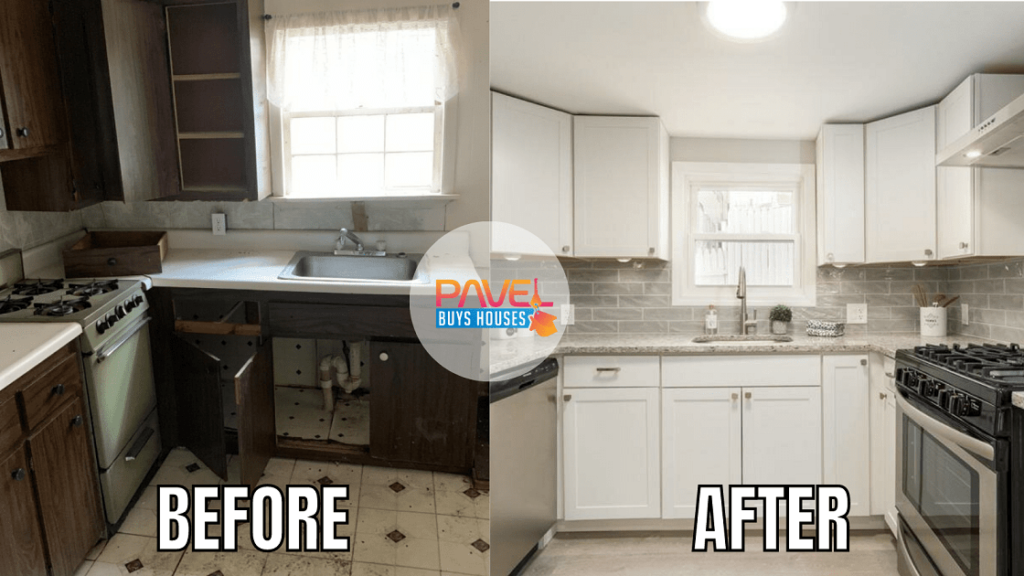Can a Nursing Home Take Your House in Tampa?
Wondering if a nursing home can take your home in Tampa, Florida? It’s not an uncommon concern among homeowners when they or their loved ones require long-term care. After all, this is not just about safeguarding one’s primary residence—it’s about protecting a lifetime of memories and hard work.
Tampa is known for its vibrant neighborhoods and high-quality health care facilities, including numerous nursing homes. Yet, many are unaware of the potential risks these facilities could pose to homeownership. In particular, the financial implications of long-term care can be substantial. This underscores the necessity for understanding local laws and regulations that could potentially affect your property rights.

How Nursing Home Costs are Covered
Navigating the costs associated with nursing home care in Tampa can seem daunting at first glance. A primary source of funding for many residents in nursing homes is Medicaid, a federal and state program that assists with healthcare costs for those with limited income and assets. But how exactly does the relationship between Medicaid and nursing home care manifest, especially concerning homeownership in Tampa?
The Relationship Between Medicaid and Nursing Home Care
Understanding the intricate details of Medicaid eligibility is crucial for Tampa residents considering nursing home care. Essentially, Medicaid provides coverage for long-term care when an individual’s income and assets fall below certain thresholds. Here’s what you need to know:
Income Limits
To qualify for Medicaid in Tampa, applicants must meet strict income guidelines that vary depending on household size and specific circumstances.
Asset Limits
Besides income, Medicaid considers an individual’s assets. Certain assets, including one’s primary residence up to a specific equity value, personal belongings, and one vehicle, may be exempted.
Exempt Assets
In Florida, if you’re single, you can have $2,000 in countable assets. For couples with both spouses applying, the limit is $3,000. If only one spouse is applying, the non-applicant spouse can retain a higher amount of assets.
These financial criteria are designed to ensure that only those truly in need of financial assistance receive it. However, there is often concern about whether owning a home disqualifies one from receiving Medicaid or puts the home at risk.
For Tampa residents, it’s important to recognize that while their home may not be counted as an asset for eligibility purposes—assuming the equity value doesn’t exceed $603,000 as of 2021—the story doesn’t end there. The potential implications on your property occur when estate recovery comes into play after the beneficiary’s death.s.
Understanding Estate Recovery
When considering the landscape of long-term care funding, it’s clear that Medicaid plays a significant role for many Tampa residents and others across the United States. Nursing home care can be notably expensive, which is why Medicaid becomes a critical source of financing for those who meet the eligibility requirements.
Medicaid estate recovery comes into effect after a beneficiary passes away. It is a process designed to allow the state to recoup some of the costs it incurred for providing long-term nursing home care. Here’s what Tampa residents need to know:
- Estate Recovery Program: When a Medicaid recipient who received nursing home care passes away, the state may file a claim against their estate to recover money spent on their care.
- Assets Subject to Recovery: Typically, the primary residence becomes the focus of these claims, especially if there are no surviving dependents living in the home.
- Protected Assets: In certain circumstances, assets may be protected from estate recovery, such as when the deceased has a surviving spouse, a blind or disabled child, or a child under 21 years old.
This program underscores why understanding Medicaid’s implications on one’s estate is crucial for Tampa families planning for long-term nursing home care. With this knowledge, they can better navigate decisions surrounding their assets and future planning needs.
Can a Nursing Home Take Your Home if You’re on Medicaid in Tampa?
Navigating the complexities of Medicaid and understanding how it interacts with homeownership rights can be daunting. In Tampa, many residents worry about whether a nursing home could potentially take their home. This is a valid concern, especially considering the financial implications and emotional attachments tied to one’s home.
Impact on Your Home Ownership Rights
Homeownership carries significant weight when discussing the financial dynamics of nursing home care. For many, the home represents their most substantial asset. So, what happens to this asset when one becomes a resident of a nursing home in Tampa?
The crux of the issue lies in understanding the relationship between Medicaid and homeownership rights.
- Medicaid: It’s essential to know that Medicaid is a needs-based program. This means eligibility is determined by an individual’s income and assets. Usually, your primary residence is not counted as part of your assets for Medicaid eligibility purposes, provided its equity value is less than $603,000 (in 2021).
- Homeownership Rights: When you move into a nursing home, you do not necessarily lose ownership of your home. However, complications arise when long-term care costs accumulate.
If you receive assistance from Medicaid to pay for your nursing home care, the state has the right to recoup from your estate whatever benefits it paid for your care after your demise. This process is known as estate recovery.
Importantly, if your spouse or another dependent relative lives in your house while you stay at a nursing home in Tampa, the house will not be counted as an asset for Medicaid eligibility purposes. They may also be exempt from estate recovery after your death.
However, if the house remains empty or rented out during your time in a nursing home, it can potentially be considered as an asset by Medicaid. Also, after death, it may be subject to estate recovery to pay back any long-term care costs covered by Medicaid.
The scenario becomes more complex when the house is sold. If you sell your house while on Medicaid, the proceeds from the sale could potentially affect your Medicaid eligibility. The money received from the sale might be considered an asset, and it could push your total assets above the Medicaid limit.
This information underscores the importance of careful planning and understanding local laws and facility policies regarding nursing homes and homeownership rights in Tampa. In some cases, it may be beneficial to consult with an elder law attorney or a financial advisor to explore all potential scenarios and their implications for your home ownership rights.
Key Considerations for Tampa Homeowners
When addressing the interplay between nursing homes and homeownership rights in Tampa, it’s essential to shine a light on several key factors that could significantly influence the outcome. These considerations are pivotal for any homeowner who wants to navigate this complex area effectively:
- Local Laws and Regulations: Florida’s laws, including those specific to Tampa, have particular provisions regarding Medicaid and property ownership. Familiarity with these regulations is crucial since they directly impact what happens to your home if you require nursing home care and seek Medicaid assistance.
- Medicaid Eligibility Requirements: Understanding the financial criteria for Medicaid in Tampa can help you plan ahead. Knowing the asset limits and how your home equity affects your eligibility could be the difference between keeping your home within the family or potentially losing it to estate recovery.
- Nursing Home Policies: Each nursing home in Tampa may have its own set of policies that can affect your property rights. It’s wise to review these carefully before admission to avoid any surprises down the road.
- Property Ownership Structures: How you own your home—whether individually, jointly, or through a trust—can have implications for its protection from Medicaid estate recovery. Exploring these structures with a legal expert can provide pathways to safeguard your property.
By keeping these factors at the forefront of your planning, you maintain a stronger position in protecting what’s likely your most valuable asset. With information as a powerful tool, let’s delve into strategies that can fortify your home against claims by nursing homes in Tampa.
How to Protect Your Tampa Home from Nursing Home Costs
In this insightful nursing home protection video, an expert delves into strategies that you can employ to shield your home from the financial demands of nursing home care.
Remember, informed decisions begin with accurate information, and this video serves as an excellent starting point for understanding your options.
Strategies to Safeguard Your Home from Nursing Home Claims in Tampa
Working with an Attorney Specializing in Elder Law
When facing the complexities of Medicaid and nursing home claims in Tampa, one of the most critical steps you can take is to partner with an attorney who specializes in elder law. These legal professionals bring a wealth of knowledge and experience to the table, offering tailored strategies to protect your assets. Here’s why seeking the expertise of an elder law attorney is beneficial:
- Expert Navigation of Legal Terrain: Elder law attorneys are well-versed in the intricate laws and regulations that govern Medicaid eligibility and estate recovery in Florida. They can help you understand your rights and the implications for your property.
- Customized Asset Protection Plans: Every situation is unique, and an experienced attorney can develop personalized plans to shield your home from potential claims. This might include establishing trusts or exploring other legal instruments designed to safeguard your assets while maintaining Medicaid eligibility.
- Proactive Problem-Solving: The best defense is a good offense. An elder law attorney can identify potential issues before they arise, allowing you to take preemptive action to protect your home.
- Guidance on Property Transfers: Navigating property transfers can be a minefield with serious consequences for Medicaid eligibility. An elder law attorney can advise on safe ways to handle property without triggering penalties.
Using Trusts to Protect Your Home’s Value
In addition to partnering with an elder law attorney, setting up a trust might be a viable strategy for protecting your home’s value while adhering to Medicaid guidelines.
- Irrevocable Trusts: By placing your home into an irrevocable trust, you may protect its value from nursing home claims. Once in the trust, the home is no longer considered part of your personal assets for Medicaid eligibility purposes.
- Medicaid Asset Protection Trusts (MAPT): A MAPT can be designed specifically to protect your assets from nursing home costs while still complying with Medicaid rules. It’s essential that this trust is properly structured; otherwise, it could adversely affect Medicaid eligibility.
Remember that trusts are complex legal tools and require careful planning and execution. Consulting with an experienced elder law attorney in Tampa will ensure that any trust set up aligns with both your financial goals and legal requirements.
By understanding these strategies and working closely with professionals who specialize in protecting home from nursing home claims, Tampa residents can take meaningful steps toward securing their most valuable asset — their home. With careful planning and expert advice, there are avenues available that provide both peace of mind and financial security as you navigate the landscape of long-term care.
Why Use a Trust?
One of the main reasons people use trusts for asset protection is that they can help you qualify for Medicaid while preserving your property rights. Medicaid is a government program that provides healthcare coverage for individuals with low income and limited assets. To qualify for Medicaid, there are strict eligibility requirements, including limits on the value of assets you can own.
By placing your home in a trust, it is no longer considered your personal asset for Medicaid purposes. This means it won’t count against you when determining your eligibility. However, it’s important to note that this strategy needs to be implemented well in advance of applying for Medicaid due to look-back periods that can trigger penalties and affect eligibility.
Types of Trusts for Home Protection
Here are two common types of trusts used for protecting homes:
- Irrevocable Trust: With an irrevocable trust, once you transfer ownership of your home into the trust, you cannot change or revoke the trust without the permission of the trustee. This creates a protective barrier since the assets within the trust are typically beyond the reach of nursing homes and Medicaid estate recovery efforts.
- The key feature of an irrevocable trust is that it allows you to maintain control over what happens to your home while still protecting it from potential creditors or nursing home claims.
- Home Protection Trust: Also known as “Medicaid asset protection trusts” or “MAPTs,” these trusts are specifically designed to shield your primary residence. They can be structured in a way that allows you to retain certain rights, such as living in the home for the rest of your life.
- Home protection trusts offer flexibility and control, as you can designate who will inherit the property after your passing while ensuring it is protected during your lifetime.
Selling Your House for Cash
In some cases, selling your house for cash may be a viable solution for protecting your assets and ensuring financial stability. This strategy can provide immediate liquidity and relieve potential financial burdens associated with homeownership, such as maintenance costs and property taxes.
However, before making any decisions, it’s crucial to consult with an experienced elder law attorney in Tampa who can assess your specific circumstances and provide personalized advice.
Remember, protecting your home requires careful planning and consideration of various factors. Seeking professional guidance can help you navigate the complexities of trust planning and ensure you make informed choices that align with your goals.
Conclusion
Understanding the potential impact of nursing home costs on your property rights in Tampa is crucial. It’s a topic that hits close to home for many, and it’s especially relevant when you or a loved one are considering long-term care options.
Remember, knowledge is power. Staying informed and being proactive can provide peace of mind and potentially safeguard your most valuable asset: your home.
Consider these key points:
- The Role of Medicaid in Nursing Home Care: It’s essential to understand how Medicaid works, particularly its relationship with nursing home costs and its impact on your assets, including your home.
- Estate Recovery: Estate recovery programs under Medicaid could potentially affect homeownership rights after death, making it crucial to plan ahead.
- Legal Consultation: Guidance from an experienced elder law attorney specializing in these issues can be an invaluable resource in navigating the complexities of Medicaid and protecting your home.
It’s also worth exploring all available options for protecting your home. One such option might be selling your home for cash if it aligns with your unique circumstances.
Don’t underestimate the importance of personalized legal advice in this matter. Every situation is unique, and what works best for one person might not be the best solution for another.
Stay informed, stay prepared, and remember: protecting your home from potential nursing home claims is possible with the right planning and guidance.
We Buy Homes for Cash All Over Tampa

Learn “How We Buy Houses” & Our Process
Step by step 100% transparent process explaining how we buy houses fast!

Meet the Team & Learn About Our Company
Discover the “Why” behind what we do & what makes our “We Buy Houses” company different.

Get a Fast, No Obligation Cash Offer Now!
Get a quick cash offer for your home by completing our form and we’ll get back to you right away 🙂
Get My Cash Offer
We buy houses in any condition. We won’t ask you to do any repairs or pay any fees. Request your cash offer today to get started!
Top Rated Local Cash Home Buyers in Tampa
Sell your house without making any repairs. We’ll purchase your home or condo as-is, allowing you to take what’s most important to you and leaving the rest for us to handle!

We’ll buy any home (yes, even an inherited house you’ve discovered is a hoarder house) and eliminate the headaches and stress associated with a traditional home sale.
We Buy Homes, Condos & Townhouses As-Is
We’ve got your back, helping you find the right way out, whatever your situation. Here are common reasons homeowners want to sell their house fast in Tampa, Florida.
Where We Buy Properties in Tampa

Looking to sell your property fast for cash in Tampa, Florida? We can help! We’re interested in buying properties of all types, from single-family homes to condos. Whether your property needs repairs or is in perfect condition, we’ll make you a fair cash offer.
Hillsborough County:
- Apollo Beach
- Balm
- Bloomingdale
- Brandon
- Carrollwood
- Cheval
- Citrus Park
- Dover
- East Lake-Orient Park
- Egypt Lake-Leto
- Fish Hawk
- Gibsonton
- Greater Northdale
- Keystone
- Lake Magdalene
- Lutz
- Mango
- New Tampa (University)
- Northdale
- Palm River-Clair Mel
- Pebble Creek
- Plant City
- Progress Village
- Riverview
- Ruskin
- Seffner
- Sun City Center
- Tampa
- Temple Terrace
- Thonotosassa
- Town ‘n’ Country
- Valrico
- Westchase
Hernando County
Sarasota County
Pinellas County:
- Clearwater
- Belleair
- Belleair Shores
- Belleair Beach
- Belleair Bluffs
- Dunedin
- Indian Shores
- Indian Rocks Beach
- Kenneth City
- Largo
- Madeira Beach
- North Redington Beach
- Oldsmar
- Redington Beach
- Redington Shores
- Seminole
- Safety Harbor
- South Pasadena
- St. Petersburg
- Tarpon Springs
- Treasure Island
Polk County:
Manatee County:
Pasco County











